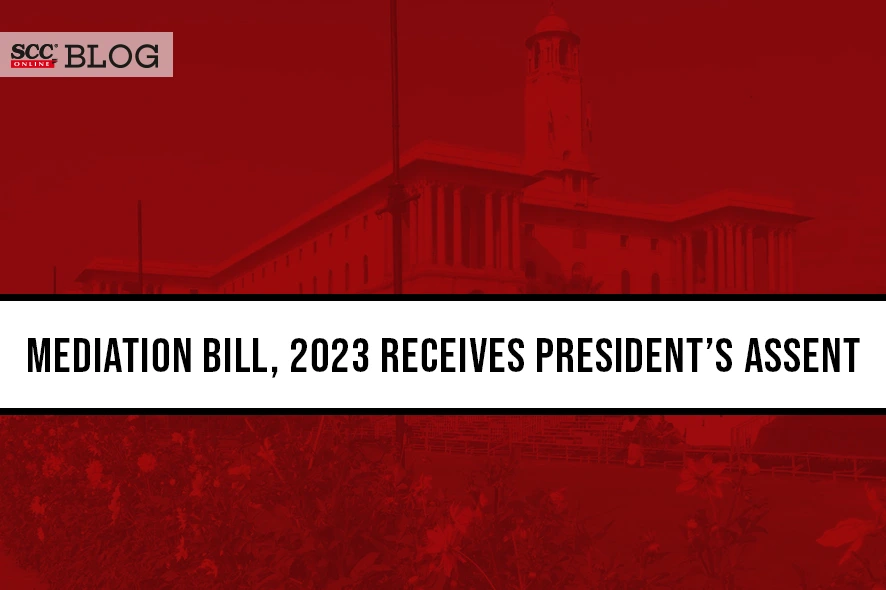On 15-9-2023, the Ministry of Law and Justice notified the Mediation Act, 2023 to especially promote institutional mediation for resolution of disputes, enforce mediated settlement agreements, provide for a body for registration of mediators, to encourage community mediation and to make online mediation as acceptable and cost-effective process.
Key Points:
-
Object:
- Need to further promote Alternative Dispute Resolution (ADR), inter alia, by institutional mediation.
- Bring a comprehensive mediation law and
- Provide online mediation to serve the interests of all the stakeholders as an effective alternative mechanism for resolving disputes.
- Applicability: This Act will be applicable where mediation is conducted in India; and
- Where all/ both parties habitually reside in/ incorporated in/ have place of business in India; or
- If provided in mediation agreement that any dispute will be resolved in accordance with this Act; or
- In international mediation; or
- wherein one of the parties to the dispute is the Central Government or a State Government or agencies, public bodies, corporations and local bodies, including entities controlled or owned by such Government and where the matter pertains to a commercial dispute; or
- to any other kind of dispute if deemed appropriate.
-
Mediation Agreement/ Clause:
- Should be in writing, i.e., document is signed by parties, there is an exchange of communications, any pleading in which existence of mediation agreement is alleged by one party and not denied by the other
- can be in a form of Mediation clause
- Any reference in any agreement containing a mediation clause will constitute a mediation agreement if the agreement is in writing and the reference is such as to make the mediation clause as part of the agreement.
- The parties, before filing any suit or proceedings of civil or commercial nature should voluntarily and with mutual consent take steps to settle the dispute by pre-litigation mediation.
- No mediation will be conducted for the disputes arising out of matters contained in First Schedule of this Act.
- In case the parties do not reach the settlement agreement, a non-settlement report prepared by the mediator will be forwarded to the Claims Tribunal, which has referred the matter for mediation, for adjudication.
-
Mediators:
- A person of any nationality can be appointed as mediator.
- Parties will be free to choose their mediator and procedure for their appointment.
- The person appointed by the parties will have to communicate his willingness within 7 days.
- During the mediation, the mediator will have to disclose to the parties in writing any conflict of interest that has newly arisen or has come to his knowledge.
- The Mediator should not act as an arbitrator or as a representative or counsel of a party in any arbitral or judicial proceeding in respect of a dispute that is the subject matter of the mediation proceedings;
- Time Limit for completion of mediation- 120 days from the date of first appearance before the mediator. The maximum extension granted over the time limit is 60 days.
- Termination of Mediation: the proceedings will be deemed to have been terminated-
- on the date of signing and authentication of the mediated settlement agreement
- on the date of the written declaration of the mediator, after consultation with the parties or otherwise, to the effect that further efforts at mediation are no longer justified
- on the date of the communication by a party or parties in writing, addressed to the mediator and the other parties to the effect that the party wishes to opt out of mediation
- On the expiry of time limit, 120 days.
-
Grounds on which mediated settlement agreement can be challenged:
- Fraud;
- Corruption;
- Impersonation;
-
where the mediation was conducted in disputes or matters not fit for mediation.







